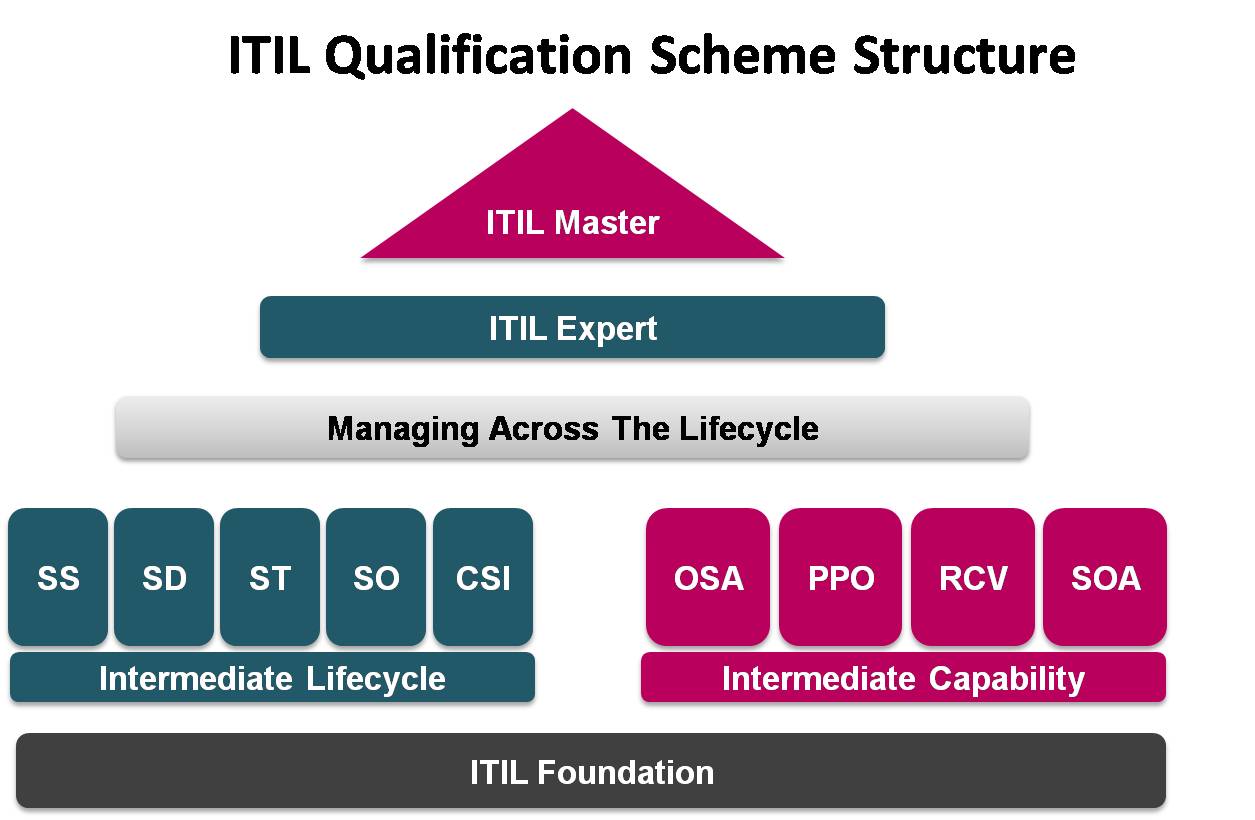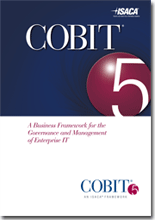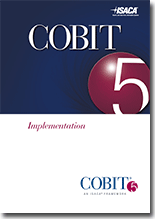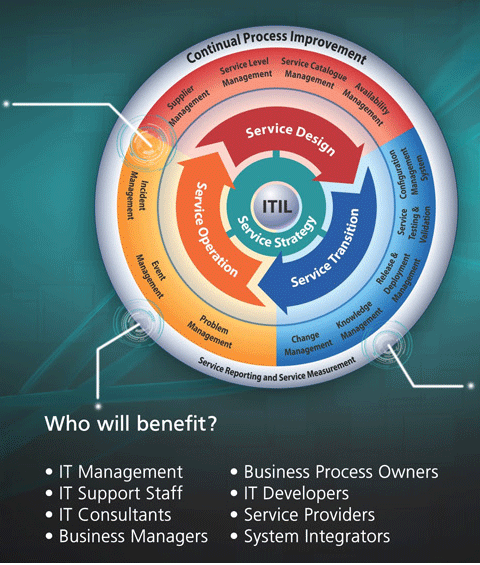ITIL Foundation Certification
What is this course about?
ITIL® Foundation training from Simplilearn is designed to ensure that you clear the ITIL exam in the first attempt. The ITIL® Foundation certification is considered as the entry level qualification in the field of ITIL certification path. Our training focuses on the key elements, concepts and terminologies associated with ITIL service lifecycle management. It includes ITIL Lifecycle Phase Interactions & Outcomes, ITSM processes and Service Management best practices.
What are the Course Objectives?
By the end of this training you will:
- Learn about IT Service Management best practices, generic concepts, key principles, and ITIL® 2011 process models that are required to clear the ITIL Foundation exam
- Gain a comprehensive understanding of the purpose, objective and scope of service strategy, service design, service transition, service operations, and Continual Service Improvement
- Learn how to apply ITIL tools, techniques and concepts to improve efficiency and effectiveness in business changes to optimize customer experience
- Understand how to apply lean principles and automate standard tasks, to improve efficiency of ITSM processes
- Save costs by centralizing activities and teams using well defined fit-for purpose and fit-for-use processes.
Examination Format
- Multiple choice examination questions
- 40 questions
- 26 marks required to pass (out of 40 available) - 65%
- 60 minutes’ duration
- Closed book.
ITIL Intermediate Level
The Intermediate level qualification is the next stage, following Foundation, in the ITIL® scheme. It has a modular structure with each module providing a different focus on IT Service Management. You can take as few or as many Intermediate qualifications as you need. The Intermediate modules go into more detail than the Foundation level, and provide an industry-recognized qualification.
The modules within the ITIL Intermediate level are divided into two categories – Service Lifecycle and Service Capability.
Some may wish to concentrate on one set of modules, but you can choose to select modules from both the Service Lifecycle and Service Capability streams in order to combine management and technical knowledge.
It is recommended that you have prior exposure to basic concepts in IT and at least two years’ professional experience working in IT Service Management before undertaking any of the ITIL Intermediary modules.
| Service Lifecycle modules | Service Capability modules |
|
|
ITIL Expert Level
The ITIL® Expert level qualification is aimed at those who are interested in demonstrating knowledge of the ITIL Scheme in its entirety. The certificate is awarded to candidates who have achieved a range of ITIL qualifications and have achieved a well rounded, superior knowledge and skills base in ITIL Best Practices.
This qualification will benefit you in both your personal and professional development, by aiding career advancement and progress within the IT Service Management field.
Route to Certification

There are many possible combinations of modules from the ITIL framework available to those wishing to attain the ITIL Expert level, but there are some key requirements:
- All candidates must hold the ITIL Foundation certificate or a Bridge qualification equivalent
- Candidates must have earned a minimum total of 17 credits from the Foundation and Intermediate modules.
- Some credits from earlier qualifications and complementary qualifications can also count towards these 17 credits. See the ITIL Credit System page for more information.
- The Managing Across the Lifecycle (MALC) module must then be taken and passed to achieve a total of 22 credits, which is the minimum required for ITIL Expert level.
Once you have successfully completed all ITIL modules required and have earned sufficient credits, you will have achieved a balanced knowledge across the full ITIL service lifecycle and can be awarded the ITIL Expert certificate.
While candidates can earn 17 credits through various learning paths leveraging any combination of the Foundation and Intermediate courses, the experience of trainers worldwide has shown that students wishing to pursue the Managing Across the Lifecycle (MALC) module benefit from taking the Continual Service Improvement and Service Strategy modules from the ITIL Intermediate Level as part of their learning path.
MALC Exam
The MALC module sits between the Intermediate and Expert levels and is the final required qualification gaining Expert status. It is intended to help you apply and integrate your knowledge of ITIL in real-world settings and in your own workplace.
Examination Format
- Multiple choice examination questions
- 10 questions per paper
- 35 marks required to pass (out of 50 available) - 70%
- 20 minutes’ duration
- Closed book.






